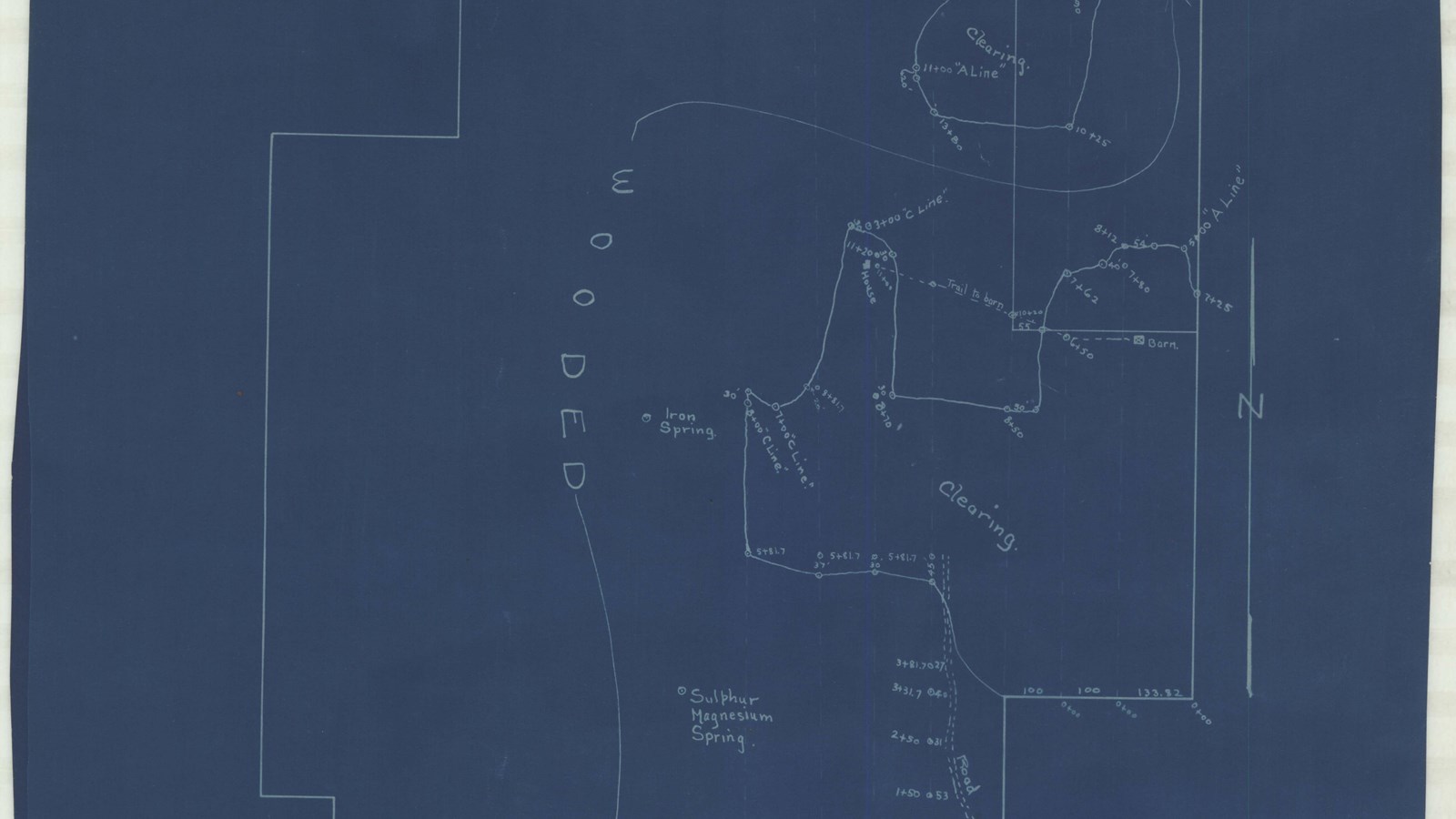Last updated: June 7, 2024
Place
Licton Springs Park

Olmsted Archives
Quick Facts
The central attraction of Seattle’s Licton Springs Park subdivision was the inclusion of two mineral springs. When Olmsted Brothers first started work in 1907, their preliminary plan included a centrally located open green space, roughly in the shape of an ellipse, surrounded entirely by a roadway with lots for homes along the road. Olmsted Brothers also included a network of trails and interior roads that wound through the park.
In addition to the mineral springs, Licton Springs Park was meant to include two ponds linked by streams, a forested interior, with paths and bridges. Unfortunately, the organic layout of the community, with its curving streets, homesites, and rustic park interior were never fully realized. From 1935 to 1960, the land had several different uses, from a farm to housing a small spa. In 1960 the park site became public land, with remnants of Olmsted Brothers scheme still present.
Source: "Licton Springs Park," Olmsted Online
For more information and primary resources, please visit:
Olmsted Research Guide Online
Olmsted Archives on Flickr
In addition to the mineral springs, Licton Springs Park was meant to include two ponds linked by streams, a forested interior, with paths and bridges. Unfortunately, the organic layout of the community, with its curving streets, homesites, and rustic park interior were never fully realized. From 1935 to 1960, the land had several different uses, from a farm to housing a small spa. In 1960 the park site became public land, with remnants of Olmsted Brothers scheme still present.
Source: "Licton Springs Park," Olmsted Online
For more information and primary resources, please visit:
Olmsted Research Guide Online
Olmsted Archives on Flickr
